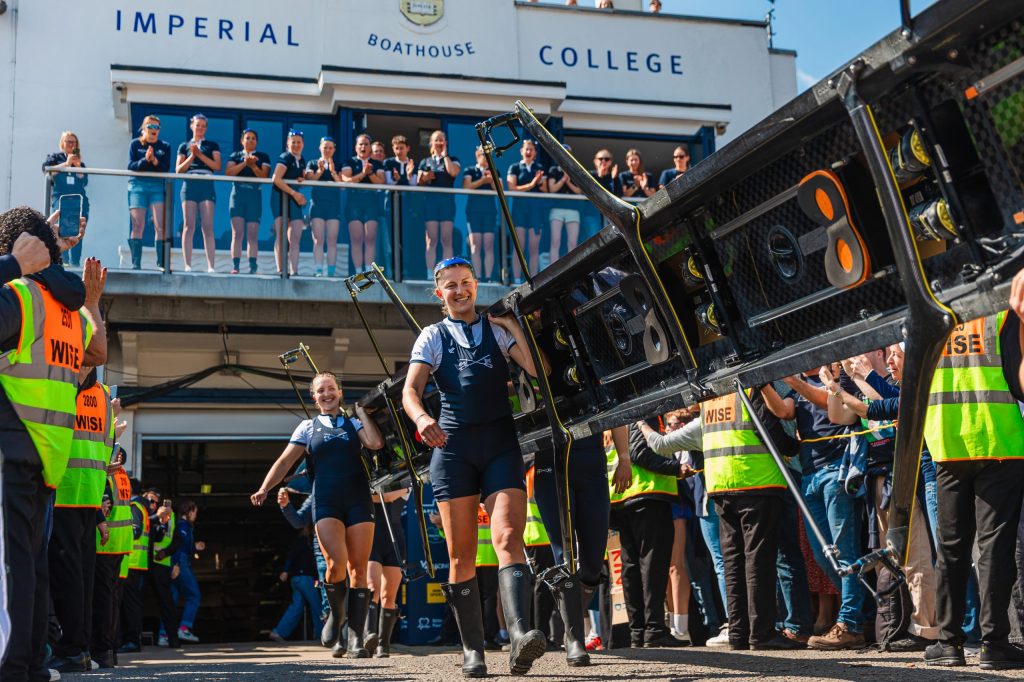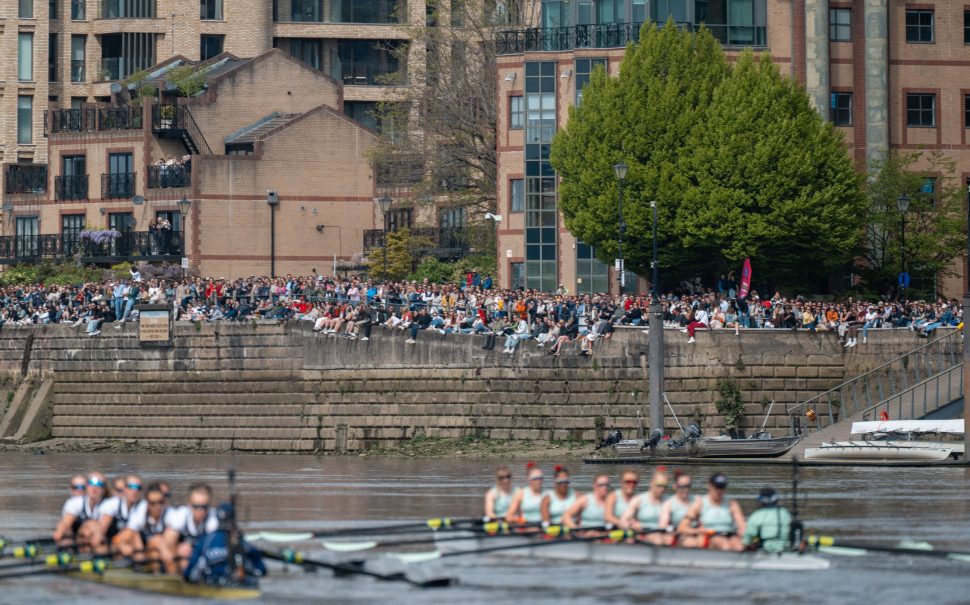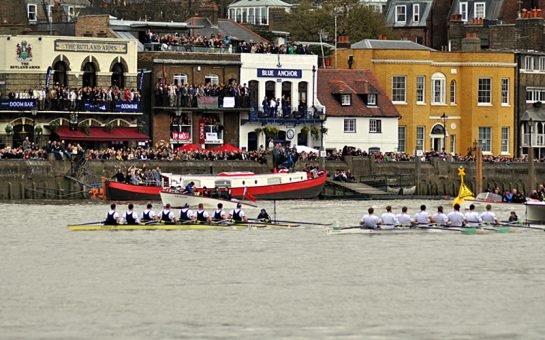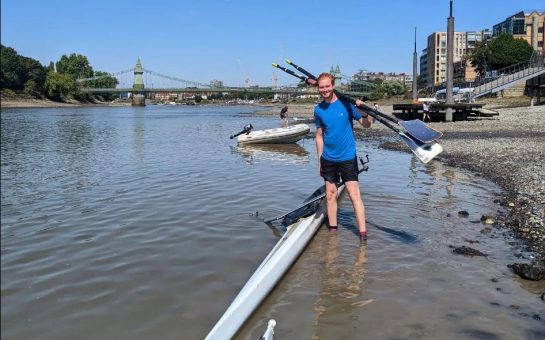The University of Cambridge took a second-consecutive clean sweep across all six events against the University of Oxford at this year’s edition of the Boat Race.
Despite having the advantage with two more Olympians across their crews, being the orchestrators of a ban on three Cambridge PGCE students, and some aggressive early steering by the cox, Oxford were unable prevent the Light Blues extending their head-to-head tally to 88-81 for the men and 49-30 for the women.
But even though it achieved a peak audience of 2.82million – more than The Masters and Bahrain Grand Prix on the same day – and 2.18million for the women’s race alone which, according to Kantar, made it the most watched women’s sporting event of 2025, is the Boat Race still exciting?
The Boat Race Company chair Siobhan Cassidy said: “The race is not just about the result.
“It is important that the athletes have the intention to win, but it is not the whole story – just being selected is a huge honour.
“The race attracts a certain type of participant, they start their year knowing that only 50% of people are going to win, only a few people want to take that challenge on.”
Even so, rowing has a reputation over a perceived lack of entertainment value or its stereotypically posh athletes.
The fact that the Boat Race is only between Oxford and Cambridge reaffirms the latter in the eyes of some, while Cambridge men’s margin of victory continuing to grow since reclaiming the title in 2023 does so for the former.
Oxford are under a new regime after chief coach Sean Bowden, who was at the helm for 27 years, stepped down following last year’s demolition and was replaced by Mark Fangen-Hall and some new coaching staff.
Cassidy said: “Change takes a lot of energy, and Oxford will be looking internally when they review and looking at the little things they can do to make a big change.
“We have seen these long runs before, and it will come – it just takes time.”
The biggest margin of victory in both the men’s and women’s openweight events in the past ten years still remains with Oxford, however, from the women’s record-setting 24-length victory in 2016.
The periods of dominance continually swap between the two universities and while Cambridge feel unstoppable at present, Oxford went undefeated in all bar one men’s race between 1976 and 1992.
However, the result of Cambridge’s current winning streak means the men have a 52% chance of winning, and the odds of a victory sit firmly in the women’s favour at 62%.
Their odds improve further when counting only the results achieved on the Championship course, where the women’s event has taken place since 2015, as Oxford have less than a 25% chance of winning on the Thames.
The pre-Boat Race fixtures provide a small insight into how the crews perform outside of the race bubble, taking on other national and international boat clubs and universities to trial their speed.
Oxford had mixed performances at the fixtures this year, with the women losing twice to Leander and the men managing to row through London Rowing Club.
Cambridge men proved dominant against the Netherlands national team in their first fixture, but then failed to replicate Oxford’s performance against London.
Cambridge women emerged from the fixtures as one of the fastest crews on paper.
Initially being beaten by a strong Leander squad, they returned victorious over University of London in all fixtures and reaffirmed their speed after coming third at Women’s Head of the River.
Head of the River, a slightly shorter time-trial format of the Championship course and done in reverse between Chiswick and Putney Bridge, provides a good indication of how universities could fare against crews nationally.
In the 2025 edition of the event, Cambridge women topped the academic pennant with the same crew they used in the Boat Race, coming third in the head race overall, with a time of 18mins 50secs, more than 26 seconds ahead of the next academic crew, University of London Boat Club, with the women’s reserve boat closing out the top five in the category.

This result was reflected in the men’s competition two weeks later, as Cambridge topped the academic pennant against University of London, winning by almost nine seconds, with Oxford Brookes University Boat Club’s third boat closing out the top three.
Although Oxford have not sent a crew to take part in the event in a few years, their absence from it may speak volumes.
Cassidy said: “For Oxford and Cambridge, the Boat Race is their main priority and what they are aiming for throughout the season, and so they have to miss other races as they practice on the Tideway over numerous weeks.”
But perhaps Oxford’s absence also poses the thought that if the Boat Race wanted to have tighter racing, it should include crews who could closely match Cambridge.
The introduction of qualification and relegation could provide more jeopardy as university boat clubs across the country fight to secure a spot in the historic head-to-head race.
However, Cassidy said: “The Boat Race is this 6.8km race between Oxford and Cambridge on the Thames.
“Without those elements, it is not the Boat Race.
“You would never organise an event like this now, on a windy river with a tidal stream, with no buoys in the middle of a city. That’s the charm.”
Viewing figures suggested the Boat Race increased in popularity this year, with viewership up 25.2% from 2024.
Footage from the broadcast made it was clear the event still attracts people to the river banks as well.
Cassidy said: “The weekend is a real highlight and a moment to shine a light on rowing as a sport, and it encourages people to get involved and join in.
“It shines a light on the river, these important blue spaces, and on west London, making it a real destination event as people filled the river banks.”
Although viewing figures were up from last year, they were far below the recent peak of 7.7million viewers in 2014, when the men’s Boat Race had years of close racing with small margins of victory.
In an era where sports try to improve their viewership through innovation, the Boat Race continues to prioritise tradition, creating a situation where Cambridge have been left unbeaten.
Cassidy said: “It is about the balance between heritage and innovation.”
But while tradition is important, in a period where all sports need to diversify, Cambridge’s seemingly unstoppable performance poses the question as to whether it is time for change.
Feature image credit: Row360, The Boat Race






Join the discussion